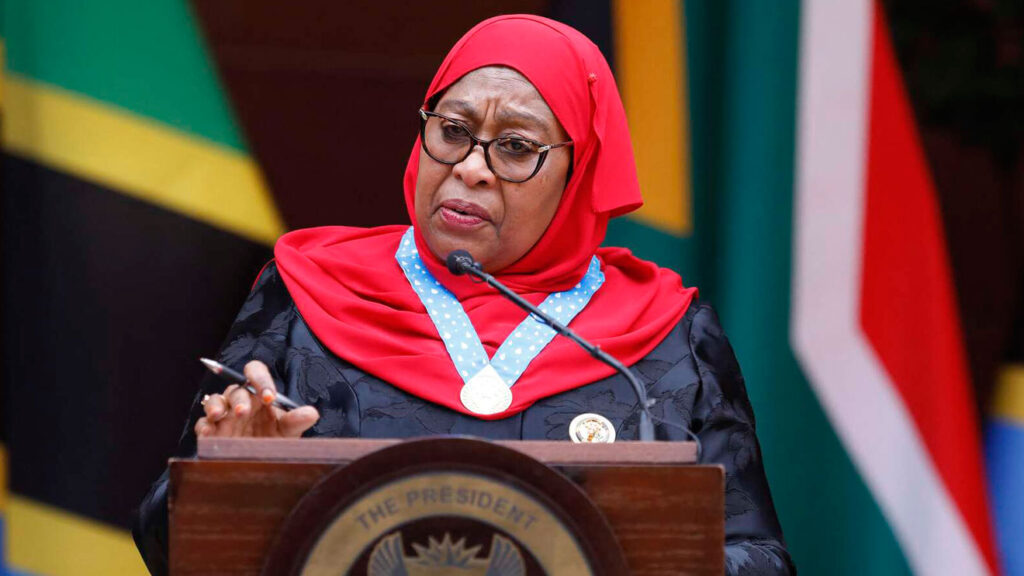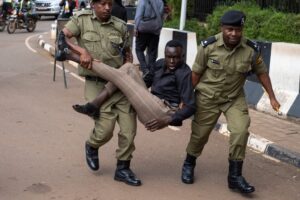Tanzanian Artist Jailed for Burning President’s Picture
Tanzanian President Samia Suluhu
Tanzanian Artist Jailed for Burning President’s Picture
In a controversial legal decision, a Tanzanian artist, Shadrack Chaula, has been sentenced to two years in prison or a $2,000 fine for burning a portrait of President Samia Suluhu Hassan. The case has sparked widespread debate about freedom of expression and the limits of cyber laws in Tanzania.
Incident and Arrest
Chaula, a 24-year-old portrait painter, faced charges after a video went viral showing him burning President Hassan’s photo while making derogatory remarks. Local authorities in Mbeya, where the incident occurred, swiftly arrested him, citing violations of cyber laws and public decorum.
Legal Controversy
Despite the arrest, legal experts and activists questioned the grounds for Chaula’s prosecution. Some argued that burning a picture, while provocative, did not constitute a criminal offense under Tanzanian law. The incident highlighted tensions between free speech advocates and those supporting stringent cybercrime legislation.
Public Outcry and Support
The artist’s arrest ignited a storm on social media, with many users condemning the government’s actions as an infringement on civil liberties. A grassroots campaign to raise funds for Chaula’s fine emerged online, reflecting a groundswell of support for his release.
Government Response
Local police chief Benjamin Kuzaga defended the arrest, emphasizing the cultural importance of respecting national leaders in Tanzanian society. He underscored that such actions were deemed unacceptable and contrary to local norms.
Court Proceedings and Verdict
During the trial, Chaula admitted to the offense but did not mount a defense against the charges of cyber-harassment and incitement. Magistrate Shamla Shehagilo ultimately found him guilty, citing the dissemination of false information and disrespectful behavior toward the president.
Criticism and Debate
Critics of the verdict argued that the punishment was overly severe and symptomatic of a broader crackdown on dissent under President Hassan’s administration. They raised concerns about shrinking political freedoms despite initial promises of reform.
Reactions from Legal Experts
Legal experts weighed in, questioning the legality of the charges and urging transparency from authorities regarding the scope of cyber laws. They called for clearer definitions to prevent arbitrary enforcement and protect individuals’ rights to express dissent peacefully.
Government Policy and Freedom of Expression
Since assuming office in 2021, President Hassan has initiated reforms aimed at liberalizing Tanzania’s political landscape. However, her administration has faced accusations of regressive policies, particularly concerning press freedom and civil liberties.
Future Implications
The case of Shadrack Chaula has become a focal point in Tanzania’s ongoing debate over freedom of expression and the limits of governmental authority in regulating online content. It serves as a litmus test for the balance between national security concerns and individual rights in the digital age.
As Chaula prepares to serve his sentence or pay a hefty fine, the outcome of his case will resonate beyond Mbeya, influencing discussions on democracy and governance in Tanzania. The incident underscores the complexities of navigating between cultural norms, legal frameworks, and the evolving landscape of digital activism.





